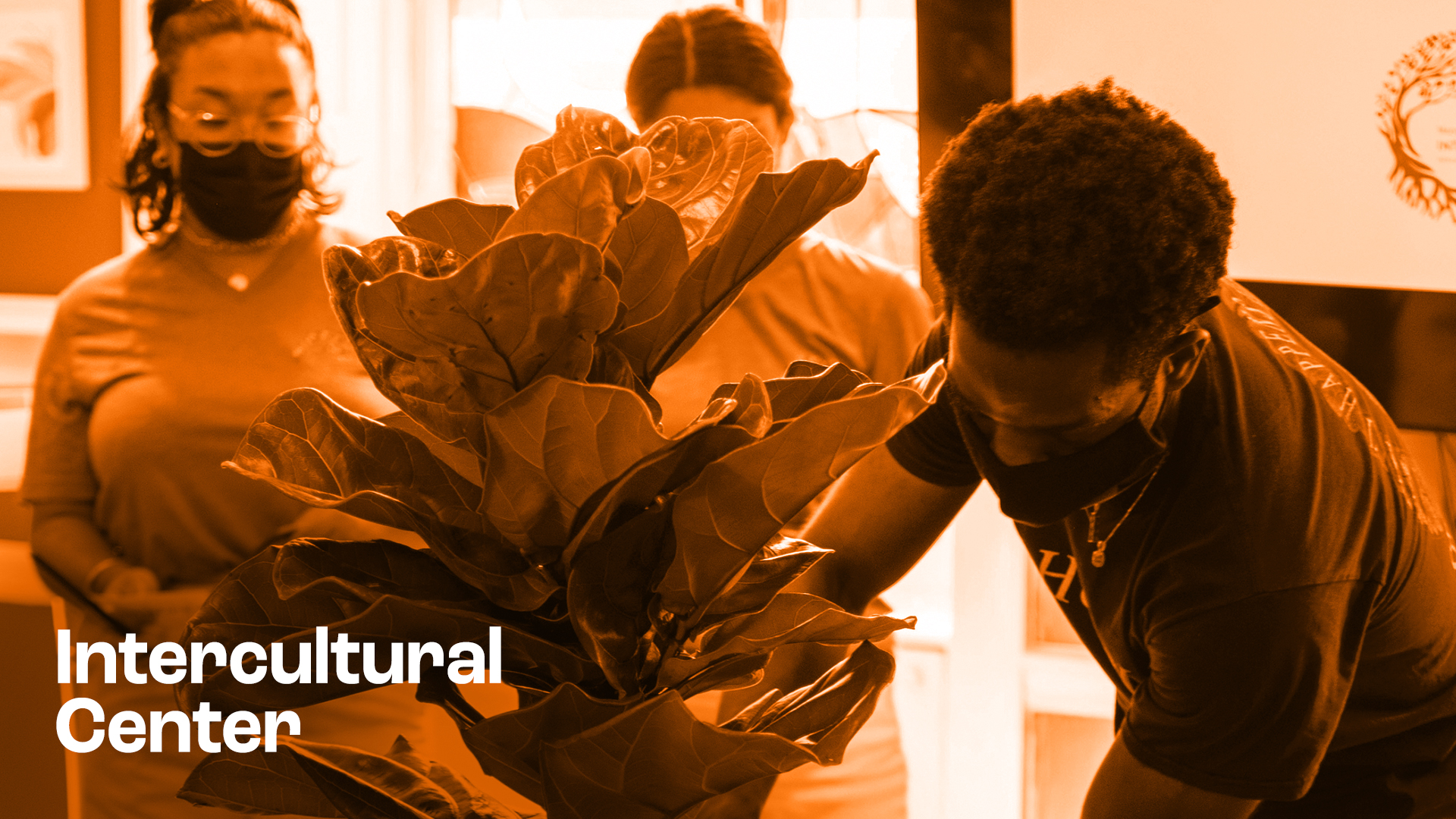Intercultural Center

Carson 412
646-393-4154
interculturalcenter@mmm.edu
The Intercultural Center works to develop a safe and welcoming space through the curation of educational and social experiences that are focused on community building, social support, and social justice competency. The Intercultural Center provides resources and programs that empower systemically minoritized groups across multiple intersecting identities that include race, ethnicity, nationality, sexual orientation, gender identity and expression, religion, spirituality, socioeconomic status, ability, and age. Central to this mission is our commitment to recognize, name, and educate about the existence of systems of oppression that perpetuate the marginalization of social groups based on identity, stemming from generations of inequitable distribution of power and privilege.
Intercultural Center Programming
The Intercultural Center at MMC hosts a variety of diversity and inclusivity programs throughout the academic year. With speakers, workshops, social, and cultural events, students have ample opportunity to immerse themselves in the college’s rich array of activities. The programs offer enhanced student learning and help students develop their sensitivity as citizens of a global society. For additional information please visit our website here or visit us in Carson Hall 412.
Identity-based Events – The Intercultural Center hosts affinity spaces and events during the year. These efforts include the Student of Color Kickback, Inclusivity Reception in September, and Student Leaders of Color Retreat.
Community Celebrations – At the end of year, The Intercultural Center recognizes our diverse population through the First Gen Students Celebration, Rite of Sankofa Multicultural Celebration (a celebration of students from the AAPI/APIDA, Black, Latinx/Hispanic, Native and Indigenous communities) and Lavender Graduation (graduates from the LGBTQIA+ community).
International Education Week – International Education Week is a joint initiative of the U.S. Department of State and the U.S. Department of Education to celebrate the benefits of international education and exchange worldwide. During November of every year, the Intercultural Center will arrange events to expand global awareness and promote education abroad.
Recognition Months – The Intercultural Center, in conjunction with Registered Student Organizations and offices across campus, partner to recognize the different cultural and identity-based recognition months including Latinx Heritage Month, Native American Heritage Month, Black History Month, Women’s History Month, APIDA Heritage Month, and PRIDE Month. You can learn more at this website. If you have a programming suggestion, please email interculturalcenter@mmm.edu.
Intercultural Center Initiatives
The Intercultural Center hosts Capacity Building Trainings and Workshops to equip our community members with tools that enhance their social justice competencies and teach us how to engage and regard each other better. Some of the topical areas have included the following:
Safe Zone: A training program designed to visibly identify students, staff and faculty members who support the Lesbian, Gay, Bisexual, Transgender, Queer, Questioning, Intersex, Asexual, and Agender (LGBTQIA+) population. This training will help attendees understand some of the issues facing LGBTQIA+ individuals and make them aware of the various LGBTQIA+ resources. The training session also provides a basic foundation of knowledge needed to be an effective ally to LGBTQIA+ students and those questioning their sexuality.
Diversity Zone: Diversity Zone is a program designed to equip individuals to understand, support, and become aware of some of the issues surrounding race, ethnicity, and class. Diversity 101 and 102 provide a basic foundation and intermediate processing of knowledge for all participants and some ways practice allyship, respectively.
Ability Zone Training: Ability Zone, in partnership with the Office of Disability Services, is an introductory workshop about stigma, disability, and supporting/advocating for the disability community. It addresses the harmful first messages we receive about people with disabilities, different types of disabilities, and the ways in which we can disrupt ableist culture on and off campus.
Anti-Racism Training: Community anti-racism training is offered in the Intercultural Center on a semester-by-semester basis. Each semester training will require participation from participants in an extended module that helps to unpack important nuances and actions in anti-racism and work toward just societies. Participation is voluntary except when participation is required as a sanction for a violation of MMC’s Discrimination Policy.
Special Topic Trainings: Training topics varied based of needs of community such as “From Student Leading to Community Organizing” and “Language Matters”.
Development and Engagement Opportunities
Tri Alpha Honor Society for First Generation Students
MMC is home of the Epsilon Omicron Chapter of Tri Alpha Honor Society, which recognizes the academic achievements of first-generation college students. To be considered for induction, minimum eligibility includes:
- being a current degree candidate at Marymount Manhattan College
- having completed at least three full-time terms of study (minimum 30 credit hours), at least one of which must have been at MMC (for transfer students), OR for those registered at least half time (minimum 30 credit hours) regardless of the number of terms completed,
- having an overall GPA of at least 3.2 in all coursework, and
- coming from a family where neither parent nor any legal guardians earned a bachelor’s degree
Social Justice Ambassadors Program
The Social Justice Ambassador Program is a five-session program that invites participants from different backgrounds and experiences to come together to explore issues of social justice. The Social Justice Ambassador Program aims to assess some of the ways societal structures perpetuates privilege and oppression through institutions and individuals. The format of the program will be weekly meetings and consist of group discussions, interactive activities, presentations, and reflections. At the end of the program, ambassadors will be required to present in groups at the Social Justice Talk Back on what they have learned from the Social Justice Ambassador program. To learn more, please visit this website, or visit us in Carson Hall 412.